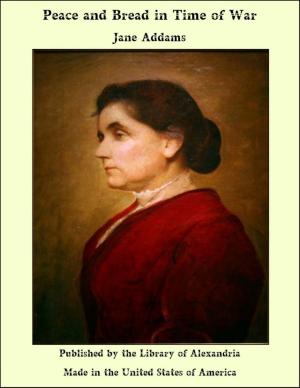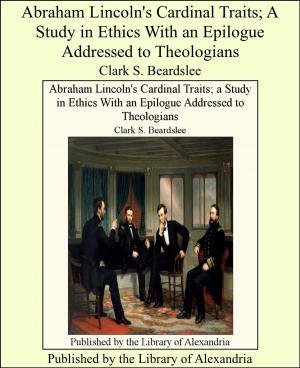Clash of Arms: A Romance
Nonfiction, Religion & Spirituality, New Age, History, Fiction & Literature| Author: | John Bloundelle-Burton | ISBN: | 9781465609304 |
| Publisher: | Library of Alexandria | Publication: | March 8, 2015 |
| Imprint: | Language: | English |
| Author: | John Bloundelle-Burton |
| ISBN: | 9781465609304 |
| Publisher: | Library of Alexandria |
| Publication: | March 8, 2015 |
| Imprint: | |
| Language: | English |
If, said the sick man, a little complainingly, perhaps a little peevishly, "he comes not soon, he is as like as not to see me in my coffin. Yet," he added a moment later, "he was ever used to keep his word. With all his faults he always did that. Prided himself on it, indeed, almost as much as on the broils and fights and troubles he was always in." "If," said the other person in the room, "he said he would come, he will come. Andrew Vause ever kept his promise." "What did he tell the messenger who found him when he rode to London?--in a tavern, be sure! Tell me again the message he sent." "That he would come the instant he had seen the King--which it was most urgent he should do. That His Majesty had promised him an interview for to-day, and that the moment it was over he would take horse and ride here. Also he sent you this," and the old woman drew from a pouch at her girdle a bit of paper, and, adjusting her glasses, began to read what was written on it--though as she did so she could not resist a smile. "Why do you laugh, Bridget?" the sick man queried, still peevishly. "Surely, knowing how near I am to death, Andrew has made no jest on me. We have not met for five years--it is quite that, come Christmas, since he has been roaming and fighting about the world--he could not do that." "Nay, what he sends comes with a good heart, be sure. Yet I cannot help but laugh in spite of--of--," she was going to say the nearness to death in which the invalid stood, but changed it to "your poor health." "I cannot help but laugh. 'Tis a new-fangled recipe for lambswool, which he says you should drink frequently. Also, he writes that he fears you do not take sufficient creature comforts. Alas!" she exclaimed, her face clouding a little as she saw the look of annoyance on the other's, "he cannot surely guess how ill you are. Otherwise, he would scarce talk of lambswool--a draught, doubtless, he himself partakes of far too often." "'Tis Andrew--that tells all! Andrew--the scapegrace, the ne'er-do-well, the joker and giber. Heavens! when was he ever serious, when did he ever apply himself to aught but ruffling and fighting and brawling! Yet--yet----" "Yet, now you would see him! Long to see him! Philip Vause, you love your brother better than you think--leastways, better than you say." "Nay, nay. I do not say I do not love him. Heavens! we all loved him. And who could help but love him, after all! Yet I would he had been more serious, would he were more serious now, as he scarce seems to have become, judging by his--his--paper about lambswool. Could he send me naught but that?"
If, said the sick man, a little complainingly, perhaps a little peevishly, "he comes not soon, he is as like as not to see me in my coffin. Yet," he added a moment later, "he was ever used to keep his word. With all his faults he always did that. Prided himself on it, indeed, almost as much as on the broils and fights and troubles he was always in." "If," said the other person in the room, "he said he would come, he will come. Andrew Vause ever kept his promise." "What did he tell the messenger who found him when he rode to London?--in a tavern, be sure! Tell me again the message he sent." "That he would come the instant he had seen the King--which it was most urgent he should do. That His Majesty had promised him an interview for to-day, and that the moment it was over he would take horse and ride here. Also he sent you this," and the old woman drew from a pouch at her girdle a bit of paper, and, adjusting her glasses, began to read what was written on it--though as she did so she could not resist a smile. "Why do you laugh, Bridget?" the sick man queried, still peevishly. "Surely, knowing how near I am to death, Andrew has made no jest on me. We have not met for five years--it is quite that, come Christmas, since he has been roaming and fighting about the world--he could not do that." "Nay, what he sends comes with a good heart, be sure. Yet I cannot help but laugh in spite of--of--," she was going to say the nearness to death in which the invalid stood, but changed it to "your poor health." "I cannot help but laugh. 'Tis a new-fangled recipe for lambswool, which he says you should drink frequently. Also, he writes that he fears you do not take sufficient creature comforts. Alas!" she exclaimed, her face clouding a little as she saw the look of annoyance on the other's, "he cannot surely guess how ill you are. Otherwise, he would scarce talk of lambswool--a draught, doubtless, he himself partakes of far too often." "'Tis Andrew--that tells all! Andrew--the scapegrace, the ne'er-do-well, the joker and giber. Heavens! when was he ever serious, when did he ever apply himself to aught but ruffling and fighting and brawling! Yet--yet----" "Yet, now you would see him! Long to see him! Philip Vause, you love your brother better than you think--leastways, better than you say." "Nay, nay. I do not say I do not love him. Heavens! we all loved him. And who could help but love him, after all! Yet I would he had been more serious, would he were more serious now, as he scarce seems to have become, judging by his--his--paper about lambswool. Could he send me naught but that?"















